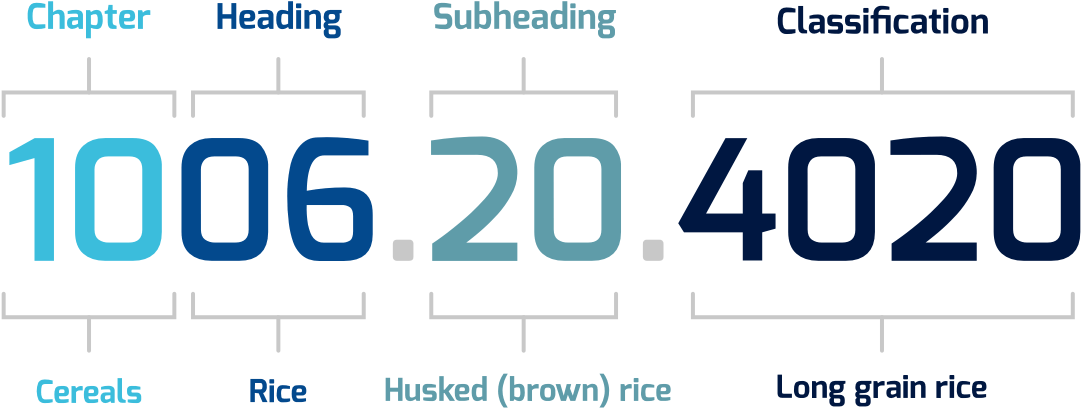A Guide to International Shipping and Customs Brokerage Processing
Introduction: What is customs brokerage processing?
Operational performance is the cornerstone of the freight industry. In order to maintain that operational efficiency (and keep customers happy), LTL carriers, 3PLs, and freight brokers need their shipments to arrive on time — despite the increasingly complex variables associated with international shipments.
Addressing those variables and ensuring timely delivery requires a wealth of knowledge about, and experience with, the laws and regulations that govern import and export taxes, customs procedures, and more. Customs brokerage processing covers all the processes involved in ensuring successful freight delivery across borders, like origin data capture and customs compliance.
Core functions of customs brokerage processing include, but are not limited to:
- Completing, auditing, and entering information from key documents, such as purchase orders, packing slips, bills of lading, import licenses, and more
- Managing daily tracing reports
- Entering and updating shipment data into client databases
- Identifying tariff and tax declarations
- Confirming compliance with the necessary customs regulations
In our technology-driven world, successful customs brokerage processing involves a combination of software, innovation, effective processes, and experience.
Why work with a customs compliance specialist?
Issues such as customs violations, paperwork errors, missing or incorrect information, inaccurate tariff calculations, and language barriers can cause significant delays and prevent shipments from making it to their destinations — which is frustrating for companies and customers alike.
With these (and other) challenges, handling customs compliance entirely in-house isn’t ideal for many organizations. Outsourcing customs brokerage processing is often a more efficient (and cost-efficient) option.
The changing tariff landscape
Almost every country imposes different tariffs, and as international relations change, so do customs requirements.
For that reason, international affairs are one of the most consequential variables associated with international shipping, and issues like Brexit customs can leave many logistics providers feeling uncertain about tariffs.
A customs compliance specialist will be up to date with all the latest regulations and tariffs — so even as the landscape changes, you don’t have to worry about trying to get up to speed on your own.
Read more about the UK tariff schedule and Brexit
By optimizing their customs processing for both speed and accuracy, freight forwarders and freight brokers can reduce errors and boost productivity.
Here are just a few of the potential benefits of working with an experienced custom compliance specialist:

More timely customs clearance

More accurate tax duty rates

Strict procedure compliance

Error identified and corrected before items reach customs
Over time, this increased accuracy can translate to significant cost savings, improved business continuity, and a competitive advantage.
Read more: Freight Forwarders Tap Customs Brokerage Services for Competitive Edge
Technology and customs compliance software
While not every company needs the same technology, it’s wise to consider the ways in which technology can improve various aspects of your operations, and weigh the costs and benefits.
For example, customs compliance software can help reduce errors, save time, and boost visibility.
Software is very helpful for tasks like identifying the proper HTS code for a shipment. Rather than looking through printed documents, software can help you quickly locate the correct HTS code, saving time and reducing errors. Some data capture technology even utilizes machine learning to quickly analyze documents and identify the proper HTS codes, greatly reducing manual workloads.
What’s an HTS code?

HTS stands for Harmonized Tariff Schedule. HTS codes are determined by the U.S. International Trade Commission and are used to classify internationally traded goods.
The first six digits of an HTS code are an HS (Harmonized System) code. The HS is a universal system managed by the World Customs Organization (WCO). In other words, the first six digits of a code for any given good will be the same regardless of the country of import or export.
It is up to the country of import to further classify the good according to their own tariff schedule using the last four digits.
HTS codes allow the country of import to correctly identify and record what they’re importing. They also determine the appropriate tariff/duty rate and contribute to international trade statistics. Without the correct HTS code, you can face legal penalties, fines, and even have your entire shipment seized.
Read more Creating HTS Codes for International Customs Compliance
Software that covers this basic function has the potential to transform operations for small- and medium-sized businesses. However, for enterprise-level freight and logistics companies, much of the software that’s widely available is not powerful enough to handle the large amounts of complex data they need to process on a daily basis.
That’s another benefit of working with a customs compliance specialist: you get access to more powerful technology that can truly optimize your operations, regardless of scale or complexity level. For example, automation technology can provide cost estimates, information about trade regulations, and licensing requirements ahead of time.
What to look for in a customs brokerage processing partner
How you select the right partner for your organization will depend on a number of factors, such as the size of your organization; the number, size, and complexity of your clients; and your unique business needs.
However, there are some general competencies to look for when it comes to customs brokerage services:

Operational efficiency
Look for an experienced partner who can improve the overall speed, accuracy, and effectiveness of your operations by:
- Managing daily tracing reports
- Data matching for accuracy against the packing list
- Invoice matching and assigning shipments to the correct importer
- Confirming compliance with the necessary customs regulations
- Entering and updating shipment data into client databases
- Leveraging advanced customs compliance software and automation technology to speed up processes

Origin data capture
A good partner will be able to manage, analyze, audit, and input data from a number of complex documents, such as:
- Commercial invoices
- Purchase Orders
- Letters of Credit
- Technical Write-ups
- Packing Slips
- Commercial Invoices
- Airway Bills / Bills of Lading
- House Bills
- Import Licenses
- Insurance Certificates

Customs compliance and import/export rating
Look for a partner with extensive experience filling out customs forms with the proper tariff and tax declarations, such as:
- Importer of Record
- Consignee
- Commercial Invoice
- Cargo Control Number
- HVS: High Value Shipment
- HS or Classification Number
- Applicable Country (Federal and Provincial) Taxes
- Tariff Treatment
- NAFTA: North American Free Trade Agreement

Customer contact
The right partner will excel at communicating with customers and delivering excellent service. This includes:
- Breaking down language barriers with multilingual capabilities
- Reaching out when necessary to request authorization, confirm information, or retrieve missing information
- Offering omnichannel support (phone, email, chat, and/or text)
- Representing your organization with a high level of professionalism
The best customs brokerage processing partner will have experience with all of the above, and demonstrate a commitment to continued process improvements, technological innovation, and optimization to help your organization maintain continuity and adapt to any challenge.
It’s also important to select a partner with a proven track record of success. Be sure to ask whether a prospective partner has worked with organizations similar to yours, and what kind of results they achieved with the partnership.
Conclusion
International shipment processing and customs compliance are critical business functions. But with all the complexities of customs paperwork, varying client needs, rapidly changing regulations, tariffs, and other challenges, handling these functions entirely in-house is not always the most efficient approach.
Working with a customs brokerage processing partner is a great way for enterprise-level freight and logistics companies to reduce errors and increase efficiency — while saving money in the long term.
Table of Contents
- Introduction: What is customs brokerage processing?
-
Why work with a customs compliance specialist?
- The changing tariff landscape
-
Technology and customs compliance software
- What’s an HTS code?
- What to look for in a customs brokerage processing partner
- Conclusion
Table of Contents
About DDC FPO
As the freight-focused division of The DDC Group, DDC FPO proudly serves 50% of the top LTL carriers as ranked by revenue and has delivered more successful freight back office solutions than any other company, including Freight Billing, Rate Auditing, POD Processing, Track & Trace, Carrier Onboarding and more.
Established in 1989, DDC is a worldwide network of business process outsourcing (BPO) experts, powered by a global team of over 7,000+ professionals to service our clients in a multitude of languages. Our hybrid approach leverages innovative technology, proprietary workflows and subject matter expertise in a customizable framework to equip you with long-term cost containment and uncapped revenue potential. Learn more about DDC FPO and how we can help you streamline your international shipment processing.




